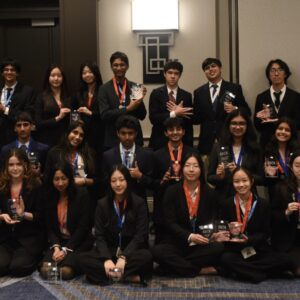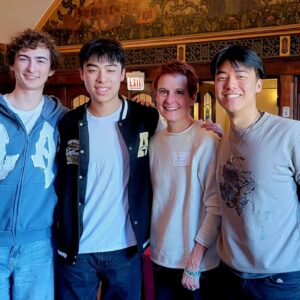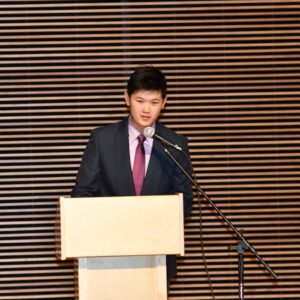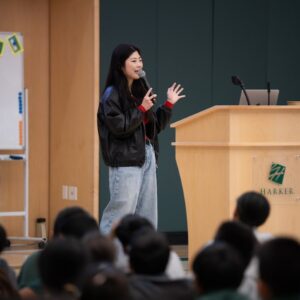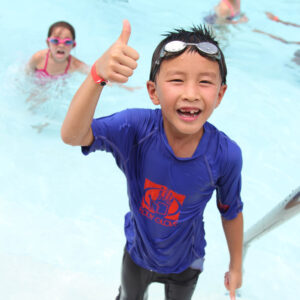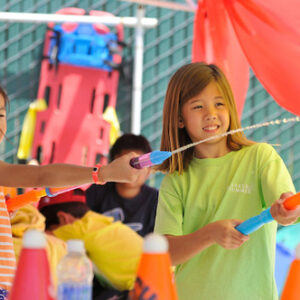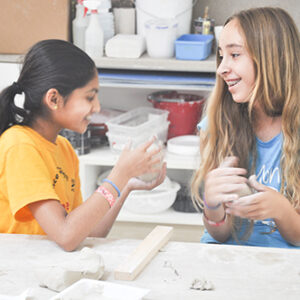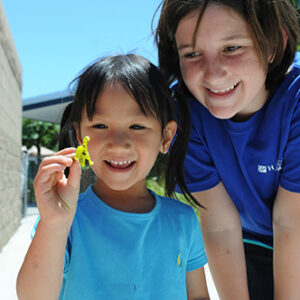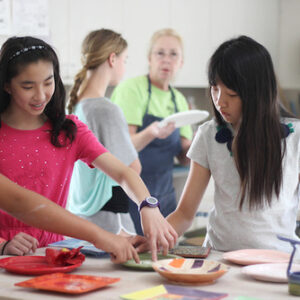Harker Summer Camp brings students from all over the San Jose area for learning and fun–often both at the same time.
The summer academic program differs from its school-year counterpart in a number of ways. For one thing, “It’s just more relaxed,” says Summer Academic Principal Diann Chung. “It’s still education, but it has a different vibe.” One reason may be that the day starts a bit later, at 8:30, and the academic schedule ends at 11:30 to make way for afternoon activities.
Offered for children entering kindergarten through grade 8, the curriculum is not just school-year redux. Chung, who chairs the regular K-1 academic team, works closely with the other department chairs to make sure the summer curriculum is compatible with that for the school year, and not redundant. “We try to make sure they are seeing and doing something different,” she says.
It can’t be easy to meet the academic needs of students with a wide variety of baseline skills in only four weeks, but that is what happens. The key, says Chung, is “differentiated instruction.”
Operating under this principle, teachers adapt the curriculum to the individual student’s level. Within the classroom, the children work in small groups, with each group offered a slightly different take on the lesson. With the help of an aide, the teacher makes sure that every student is challenged, but not too much.
There are fewer subjects to study, too. The morning consists of one class period each of math and language arts, and one 45-minute elective. Everyone is conscious of the fact that it’s summertime, so teachers have a great deal of latitude with which to incorporate games, crafts and activities into the curriculum.
Teacher Alice Cooley makes sure to read a silly story to her first-graders every day. “They think it’s great to hear me get my tongue twisted” while reading “Fox in Sox,” she says.
In math, she uses a lot of manipulatives, objects students handle to help them learn. For example, she noticed that the kids knew the value of individual coins, but had trouble combining them. So she put together a little bag of faux coins for each child. “We’re working with things they are missing, but doing it in a fun way,” she says. “It’s hands-on learning.”
Elective topics run the gamut from math to language arts, science, technology and the arts. During each four-week session, students select two from such intriguing choices as Hopscotch Math, Kitchen Chemistry and Jump Write In.
On a recent day, third- and fourth-graders from the Enviro-Kids class were running across the field with their homemade dust collectors for a study of air pollution. Later they would be using computers to learn more about the Gulf Coast oil spill and writing about experiments with different ways to clean up oil.
Grade 1 parent Trupti Kapadia likes the balance of choices that the four-week program offers. “There is some pre-designed curriculum, some electives that offer parents a choice on what extra academic emphasis to give their kids, and then the 3:30-5:00 Special Interest Hour, where the kids get to make their own choices,” she says.
She enrolled her twins, Nikki and Kaden, in KinderCamp last year to help them adjust to Harker. Now first graders, they are enjoying camp just as much. In fact, says Kapadia, “As the first session was ending, they checked in with me to make sure they were signed up for the second session.”


